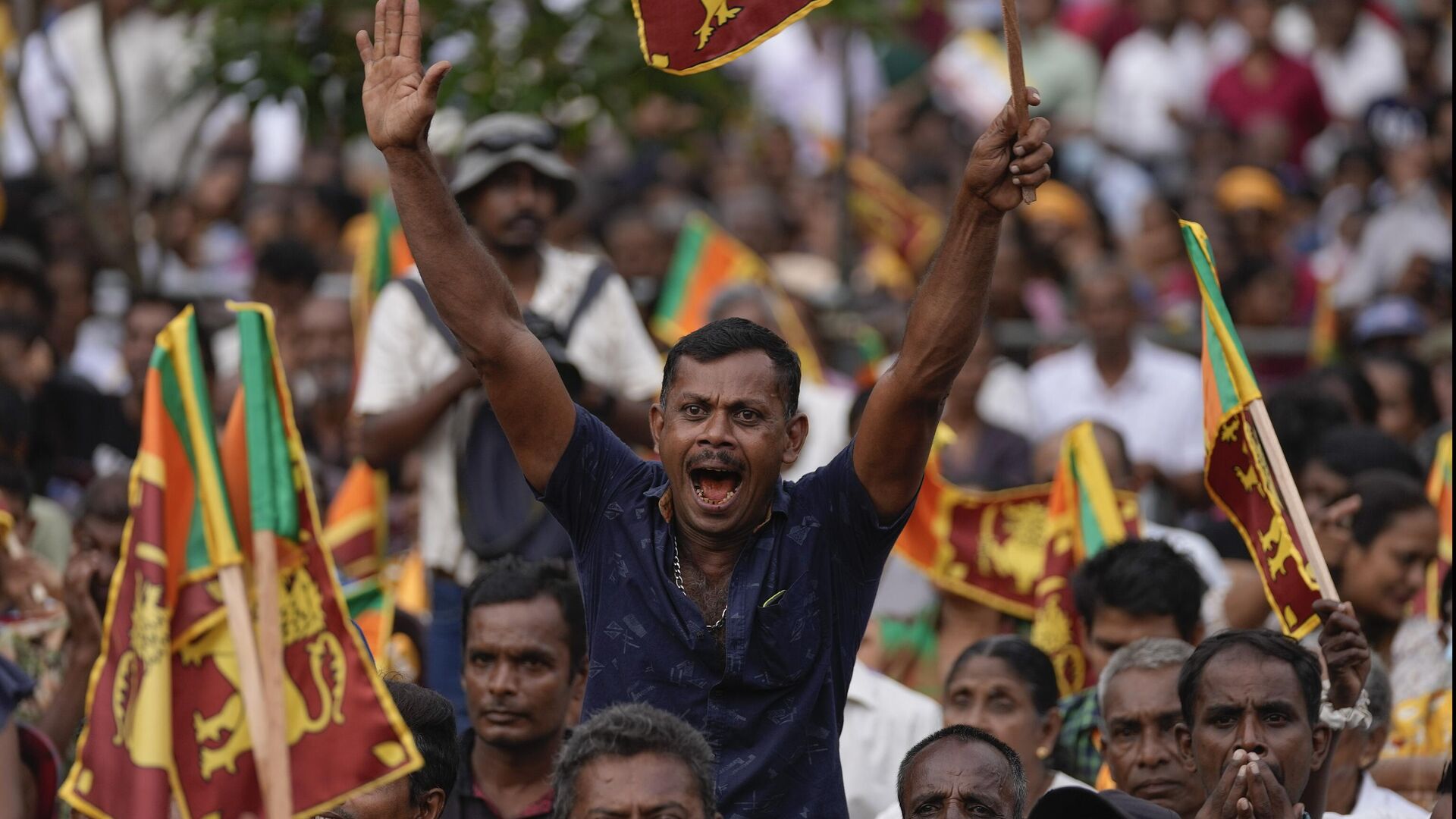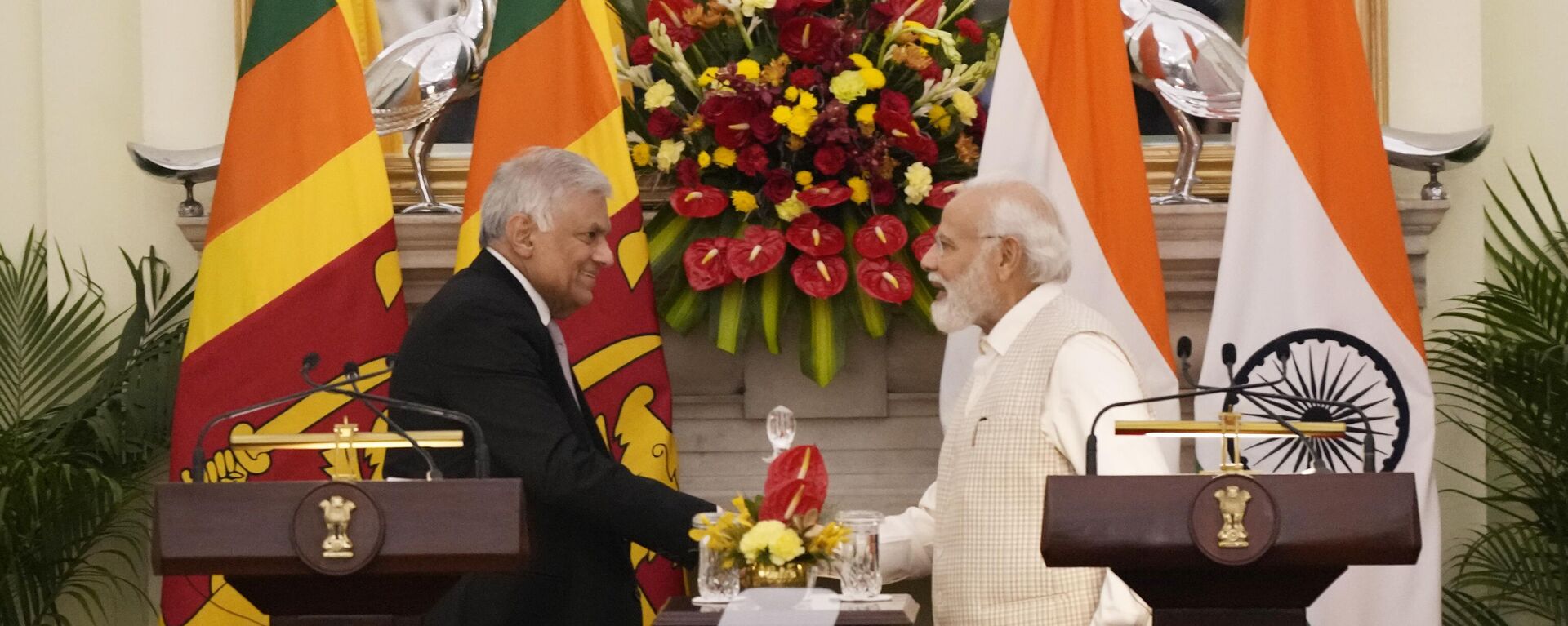All Eyes on Sri Lankan Presidential Election
12:12 21.09.2024 (Updated: 16:29 21.09.2024)

© AP Photo / Eranga Jayawardena
Subscribe
Over 17 million Sri Lankans will vote to elect a new President on Saturday. Sputnik India examines how the results of these elections could impact the tiny island nation's immediate neighbour India.
Sri Lankan presidential polls could have deep ramifications for India, considering the volatile situation that has emerged in the post-Sheikh Hasina Bangladesh since last month, an academic specialising in Sri Lankan affairs has said.
According to Pondicherry University Professor Dr. Nanda Kishor, the overthrow of the Hasina-led government in Bangladesh signals a period of uncertainty in India's eastern neighborhood. This churn, combined with the upcoming Sri Lankan presidential elections, elevates the significance of Sri Lanka for New Delhi's strategic interests for several reasons:
Maritime Security in the Indian Ocean: Sri Lanka holds a key position in the Indian Ocean, and with developments in Bangladesh potentially affecting the Bay of Bengal region, India's maritime security interests gain added importance. The new Sri Lankan leadership could either enhance cooperation with India on maritime issues or lean further towards China.
Economic and Trade Routes: Given the uncertainty in Bangladesh, India may need to focus on its other neighbors to secure trade routes and economic partnerships. Sri Lanka, with its strategic ports like Hambantota and Colombo, is crucial for India's connectivity and trade in the Indian Ocean. The new government could influence how these trade dynamics play out, especially if it decides to deepen ties with Beijing.
Tamil Nadu and Ethnic Concerns: Any political change in Sri Lanka affects India's domestic politics, especially Tamil Nadu, due to the ethnic Tamil population in Sri Lanka. The outcome of the elections will influence Sri Lanka's policies towards its Tamil population, and New Delhi will need to ensure that the new leadership does not destabilize this sensitive ethnic issue, which could further complicate India's internal political landscape, particularly with a volatile neighborhood.
It is worth noting that incumbent Ranil Wickremesinghe's primary challengers in the electoral battle are Anura Kumara Dissanayaka and Sajith Premadasa.
Dissanayaka heads the Communist party Janatha Vimukthi Peramuna (JVP) in Sri Lanka and his Marxist leanings seem to project him as someone who's pro-China. In contrast, Sajith Premadasa is the son of Sri Lanka's slain former President Ranasinghe Premadasa and leads the country's main opposition outfit Samagi Jana Balawegaya (SJB).
Against this backdrop, Kishor noted that a leadership that is critical of India might seek closer ties with China, which has already invested heavily in Sri Lanka through projects like the Hambantota Port and Colombo Port City.
"Moreover, India's ongoing efforts to maintain strong ties with Sri Lanka through economic aid, investments, and cultural diplomacy could be sidelined if the new leadership adopts a more skeptical stance towards New Delhi," he stressed.
Besides, India and Sri Lanka have cooperated on multiple fronts, including infrastructure projects, trade agreements, and maritime security. If the new leadership views India less favorably, this cooperation could be affected, the geopolitical pundit explained.
Kishor pointed out that with India playing a crucial role in maritime security in the Indian Ocean, any drift in relations could affect security cooperation, potentially weakening joint efforts to combat piracy, terrorism, and ensuring safe shipping lanes.
However, he reckoned that Sri Lanka's economy has significant ties to India, and antagonizing New Delhi could prove counterproductive. Thus, while relations might undergo a reset initially, there could be room for pragmatic engagement later on.
"A leader with anti-India sentiments coming to power in Colombo could reset ties between India and Sri Lanka, particularly by pushing the country towards a pro-China orientation, straining economic and security cooperation, and possibly complicating ethnic dynamics. Despite that, the depth of economic and strategic interdependence between the two nations may create opportunities for India to re-engage after the initial reset, particularly if economic pragmatism takes precedence over political rhetoric," the international relations commentator concluded.


